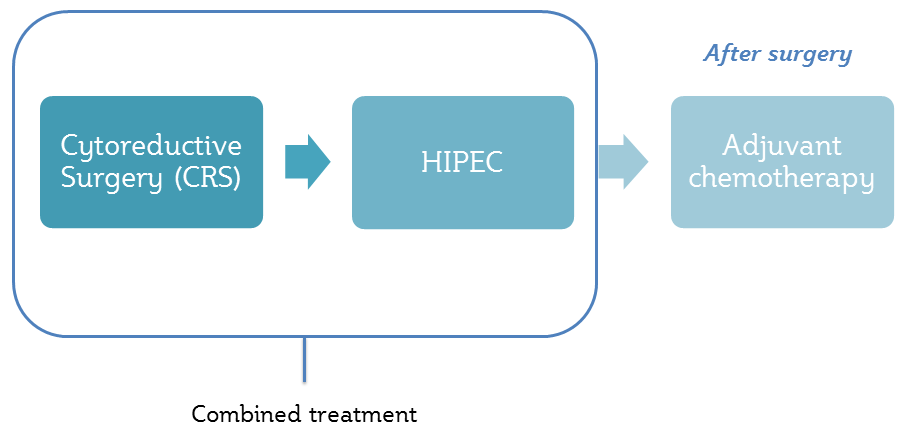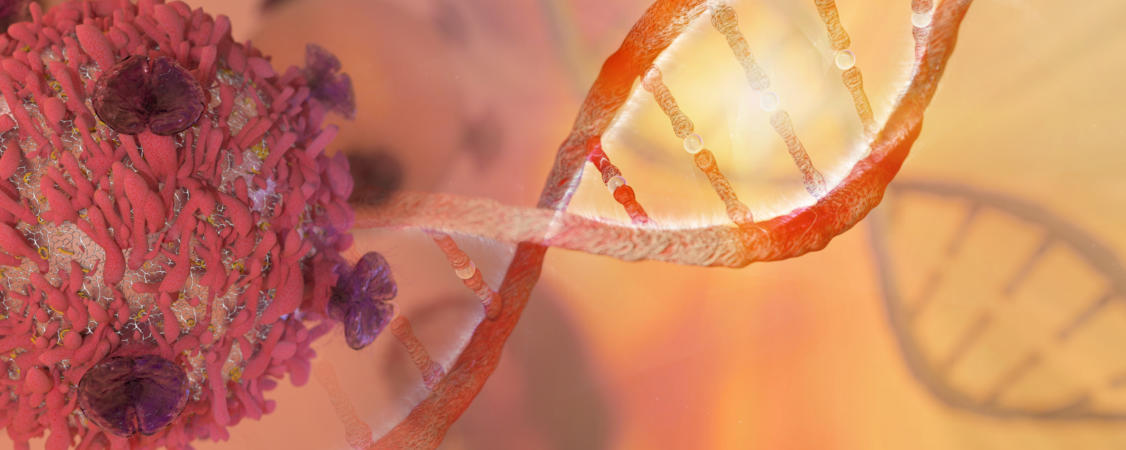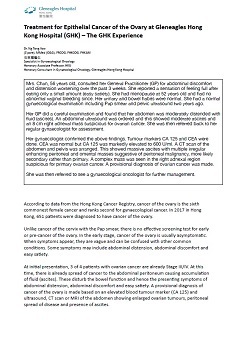Hyperthermic Intraperitoneal Chemotherapy (HIPEC)
What is HIPEC?
HIPEC is a high-concentration treatment directed at treating certain types of cancer in which drug delivery and susceptibility of cancer cells is enhanced. It is a process during which heated chemotherapy is applied directly into the abdomen after Cytoreductive surgery while the patient is still under anaesthesia.
How is the HIPEC procedure carried out?
HIPEC involves administering chemotherapy immediately following cytoreductive surgery while the patient is still under anaesthesia. The drug solution is given at a temperature of 42 oC which helps increase overall penetration of the drug into the peritoneal cavity to reach the cancer cells. The drug solution is heated and recirculated in the abdomen via a Hyperthermia Pump. Tubes are applied in the abdominal cavity to bring heated fluid from a reservoir to the abdomen and to aspirate it again in a closed circuit. The Hyperthermia Pump ensures that the drug is circulated throughout the whole peritoneal cavity.

What are the advantages of HIPEC in treating cancer?
1. Single treatment
- HIPEC is usually administered as a single treatment immediately after the cytoreductive surgery while the patient is still under anaesthesia.
2. High regional concentrations
- HIPEC is a high-concentration treatment directed at treating certain types of cancer in which drug delivery and susceptibility of cancer cells is enhanced.
- Safe delivery of higher drug doses than traditional chemotherapy, enhancing absorption and susceptibility of cancer cells.
3. High temperature increases the penetration of drugs and the death rate of cancer cells
- The drug solution is given at a high temperature of 42 degree celsius. The high temperature increases the penetration of drugs into the peritoneal cavity to reach the cancer cells directly.
- It also interferes with the ability of the cancer cells to repair themselves and therefore increases the sensitivity of the chemotherapy.
- The tumour-killing effect is increased as well as the depth of penetration into the small tumour remnants.
- High temperature also increases the death rate of cancer cells, prevent new blood vessels from forming to supply the cancer cells, and activates heat-shock proteins which enhances the effect of the immune system of the patient by acting as receptors for natural killer cells. The heat directly kills cancer cells by promoting the denaturation of protein
4. Improve survival rates
- In January 2018, a study was published in the New England Journal of Medicine showing a significant improved survival of patients suffering from advanced ovarian cancer when they were treated with HIPEC.
- On average, patients that were treated including HIPEC lived 12 months longer than patients without HIPEC. The addition of HIPEC to the treatment did not result in more complications or treatment-related death.
Cytoreductive surgery followed by HIPEC is considered for certain conditions including:
- Primary peritoneal cancer
- Colorectal cancer
- Appendiceal (appendix) cancer
- Ovarian cancer
- Peritoneal mesothelioma
- Cholangiocarcinoma
- People who have advanced surface spread of cancer within the abdomen, without disease involvement outside of the abdomen
Please consult your doctor to conduct assessments to determine your status, whether the procedure is appropriate for your case.







